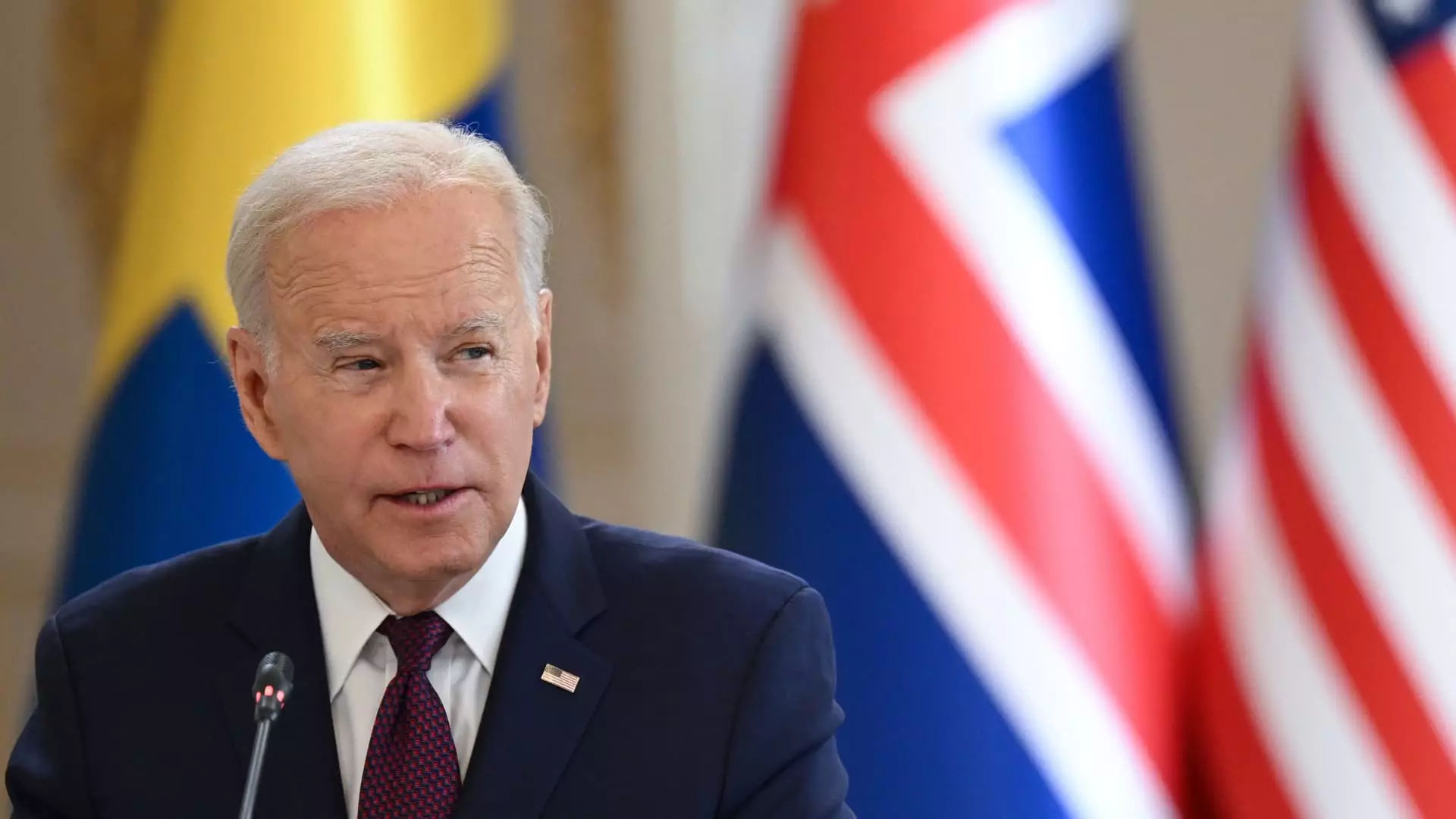As NATO commemorates its 75th anniversary, the summit held in Washington, D.C., represents a critical juncture for the alliance. With a backdrop of geopolitical tensions primarily revolving around the ongoing conflict in Ukraine and internal dynamics within the United States, the global political landscape poses significant challenges and opportunities for the future of NATO.
U.S. President Joe Biden finds himself under intense scrutiny as he attends this pivotal summit. Concerns about his age and mental acuity have been prevalent, particularly after a less-than-stellar debate performance against former President Donald Trump. Rose Gottemoeller, former NATO deputy secretary-general, highlighted the necessity for Biden to demonstrate his capability to lead not only the United States but also the NATO alliance itself. This evaluation of Biden’s performance will be crucial; the president’s ability to project confidence and authority at the summit could be seen as a reflection of U.S. commitment to NATO, especially during this fluctuating geopolitical climate.
Biden’s presence is particularly significant in light of perennial criticisms surrounding his command over foreign policy and international alliances. Observers will be closely watching how Biden engages with other leaders and addresses pressing issues like defense spending and support for Ukraine. Given the current global tensions and the political climate back home, this summit serves as a stage for Biden to consolidate his position and reaffirm his leadership.
While the summit is indeed important, Gottemoeller provided a measured perspective, asserting that it should not be characterized as “make-or-break” for the alliance. History illustrates that NATO has faced numerous challenges throughout its existence. Observations reveal that the organization has consistently navigated crises, adapting to the evolving international landscape.
For instance, NATO has weathered wars, expansions, and internal disagreements yet remains a pivotal entity in global security paradoxes. Emphasizing NATO’s resilience, Gottemoeller noted the importance of the alliance’s unified stance and collective defense principles, which can withstand political headwinds. Such historical context strengthens the belief that although current challenges may seem daunting, NATO possesses the inherent capability to adapt and emerge stronger.
The Ukraine Conflict: A Central Concern
At the heart of discussions at this summit lies NATO’s support for Ukraine amid its ongoing conflict with Russia. The alliance’s response to Russian aggression is crucial, particularly given the fears that a change in U.S. leadership could jeopardize this aid. The narrative surrounding Donald Trump presents a significant concern for NATO; his previous threats to withdraw funding and diminish U.S. support create uncertainty within the ranks.
Many observers have raised alarms that should Trump regain the presidency, the nature of U.S. involvement in NATO might shift dramatically. Trump’s long-standing emphasis on increasing defense spending among allies could lead to heightened tensions within the alliance if member nations don’t align with his expectations. These dynamics introduce an uncomfortable layer of unpredictability, compelling NATO allies to consider how they can ensure their security without over-reliance on U.S. support.
A recurrent theme in discussions surrounding NATO is the issue of defense spending. Trump’s previous administration put significant pressure on member nations to meet the target of allocating at least 2% of their GDP towards defense. This expectation remains a critical aspect of NATO negotiations and discussions as leaders reassess their commitments amidst growing threats.
Currently, 23 of NATO’s 32 member states are complying with this defense spending guideline, a substantial increase that reflects the alliance’s proactive approach to security concerns sparked by Russia’s actions. This trend showcases the alliance’s adaptability; NATO has historically embraced defense investments and their upsurge serves as a testament to a collective recognition of emerging security challenges.
Looking Ahead: Strategies for Unity
As NATO steps into its next chapter, fostering unity amongst member states while addressing diverse agendas will be essential. The upcoming summit, therefore, represents more than a celebration of the past; it is an opportunity to forge a path towards future collaboration and assert NATO’s role as a bulwark against emerging global threats.
In redefining its strategies, NATO must continue to promote the sharing of responsibilities for collective defense, confront disinformation, and bolster its relationships with key global partners. The success of this summit hinges on the alliance’s ability to engage cohesively in addressing immediate geopolitical threats while laying a foundation for lasting partnerships beyond its borders.
As NATO marks its 75th anniversary amidst the multitude of challenges posed by internal politics and external threats, the prevailing commitment to collective security will undoubtedly shape its future for decades to come. The summit will test the resolve of the alliance and the leadership of those steering its course during uncertain waters.


Leave a Reply